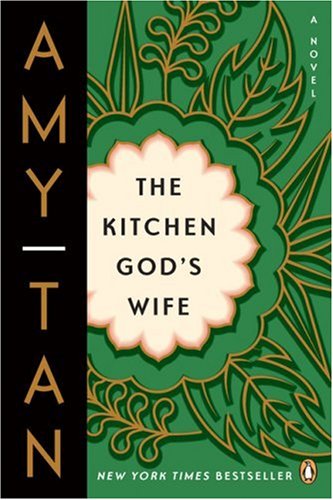
The book Acheron, the end of a large story arc in Sherrilyn Kenyon's Dark Hunter series, is split into two parts. The first half of the book catalogs Acheron's life through the eyes of his sister, Ryssa. A lot of people say they skipped the first part, because it's so depressing but its really essential for fully understanding the second part.
Kenyon has intentionally kept Acheron 's past sketchy until this point. We know he was abused some how, that he has a brother who really hates him, he wasn't always a god but we don't know how or why that changed. We know that Artemis has some power over him and we know that he loathes her, but at some point he really loved her. Burn, baby burn.
Keep going if you've read it or don't care about spoilers.
In the first half of Ash's book Kenyon delves into first person for the first time. Ryssa, Acheron's sister, does the talking for the majority of part one and Kenyon does a surprisingly good job at keeping it interesting but still meek, as is the character of Ryssa. She describes his families treatment of him and how he vanished at the ripe old age of 7 to become a sex slave on the island of Atlantis. Kenyon goes to great lengths giving us all the things we've been dying to find out about that part of her mythology. If you skip part one you pretty much miss out on all of that. You also miss out on the why of Acheron's actions and reactions for... well... the entire series, not just this book.
The overall message in the first book: The road to Tartarus is paved with good intentions. (Its a thick road.)
Between Artemis, who we know messed him up, and his sister, Acheron's life becomes a wasteland of good intentions that all play a role in the demise of his self. This is important to know, not just from being told, but from being shown. You could be told that Acheron has little trust for people but its so much more poignant when you're shown why he has such little trust. And Kenyon does a painfully good job of showing that. Just reading it was a kick in the gut, I can't imagine writing it.
In the second half of the book we jump into the present and the typical template for Kenyon's Dark Hunter novels. If you skipped out on part one you will have little appreciation for anything Ash does in the second half of his book. The love interest is Tory who is devoted to Greek mythology and finding Atlantis. In fact, that's how we met her in the first place. She was Geary's young cousin in Dream Hunter, the book which takes place in and around Greece focusing on Atlantis and not going there.
Ash meets Tory at a conference about Atlantis actually. She's discovered the location of Atlantis and Ash has to go stop her, not only because his mom would come out and destroy the world if she were freed, but to protect his own sordid past. Interesting. We always knew Ash had depth, but self preservation was previously not listed amongst his many assets. Yet Kenyon makes sense of all this in part one of the book. See? If you skipped it you might think Ash is just narcissistic and out of character.
The romance end of things is pretty typical and the story sets us up for many, many more Dark Hunter novels (yay!) Kenyon adds in volumes of new mythology points and things of interest to keep the series going. Everything is running smoothly until Ash drinks Sprite. The novel kind of goes from typical DH story to wtf?! in like, a sentence. No, she never really explains why Sprite gets him drunk, but its hilarious enough that I didn't really care for an answer to that.
(Ash is drunk and guess what that means? Simi gets drunk too. ;) I think this interaction and exchange would have been enough for me. At this point Kenyon could have built up to a vicious war with a pointless stand off ending and I would have been totally cool with it. )
More details about the past start to resurface at this point and we learn about more things that tie Ash and Tory together. It's a shame that these things weren't mentioned at all back in Dream Hunter, it would have made the foreshadowing more impressive. But Kenyon did a really good job within the book. (I'm a foreshadowing nerd, I can usually pick up on it right away, so when it surprises me I'm extra pleased.)
The book culminates an entire story arc, so finishing it was a bit melancholy, but we see more of Ash and Tory in future books. Like I've said, the first part of the book is the spine of it, if you skip that you miss out on too much. It ends up just being another Dark Hunter novel which is so not the case.
 From the Jacket:
From the Jacket:



